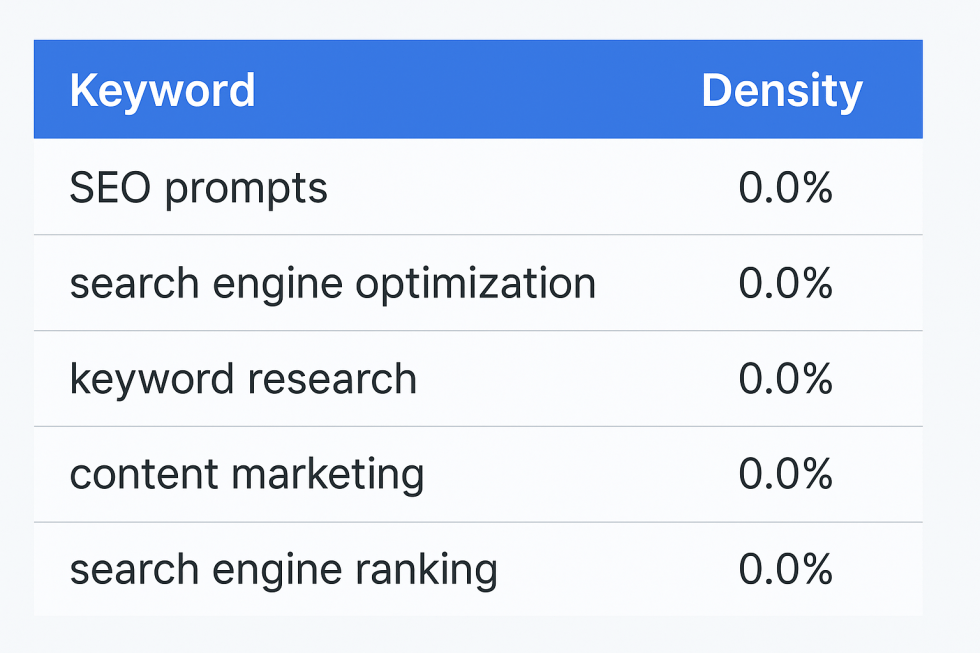
In today's digital landscape, search engine optimization (SEO) plays a crucial role in driving organic traffic to your website. Understanding how to optimize your SEO can significantly impact your online visibility and ultimately, the success of your business. From conducting keyword research to optimizing on-page elements and building quality backlinks, there are various ways to enhance your website's SEO performance. This article will delve into key strategies and best practices to help you optimize your SEO on your website and improve your search engine rankings.
1. Understanding SEO Basics
The Importance of SEO
You know how you search for that perfect avocado toast recipe and Google magically shows you all the top results? That's the power of SEO (Search Engine Optimization) at work. SEO is like the cool kid at the digital marketing party - everyone wants to hang out with it because it gets you noticed. Without optimizing your SEO, your website is basically that shy kid in the corner no one talks to.
SEO-concepts">Key SEO Concepts
To be friends with SEO, you need to understand a few key concepts. Keywords are like the secret code words that help search engines understand what your website is all about. Backlinks are like digital high-fives from other websites telling Google you're legit. And mobile-friendliness is like making sure your website looks good on all devices - no one likes a website that's only pretty on desktop, right?
2. Conducting Keyword Research
Choosing Relevant Keywords
Picking the right keywords is like choosing the right ingredients for a killer recipe. You want keywords that are not too broad (like "food") or too niche (like "avocado toast recipes for left-handed chefs only"). Get inside your audience's head and think about what they would type into Google when searching for your content.
Tools for Keyword Research
Luckily, you don't have to do this all by yourself. There are tools out there that make keyword research a breeze. Google Keyword Planner is like the swiss army knife of keyword research tools, giving you insights into search volumes and competition. Other tools like SEMrush and Ahrefs can also help you spy on your competitors and find hidden keyword gems.
3. Optimizing On-Page Elements
Title Tags and Meta Descriptions
Think of title tags and meta descriptions as the cover and blurb of a book. They should be catchy, informative, and make people want to click. Include your main keywords here to show search engines what your page is all about. This is an important step when you try to optimize your SEO.
Heading Tags and Content Structure
Imagine reading a book with no chapters or paragraphs - it would be a nightmare! The same goes for your website content. Use heading tags (H1, H2, H3) to break up your content and make it easy to read. Search engines love well-structured content, and so do your readers.
4. Creating High-Quality Content
Content Relevance and Quality
Gone are the days of keyword stuffing and boring content. Today, it's all about creating content that's relevant, valuable, and engaging. Be the avocado toast recipe that everyone raves about - not the one that leaves people scratching their heads.
Optimize Your SEO
Sprinkle those keywords naturally throughout your content like seasoning on a dish. But remember, don't overdo it. Google is smart enough to know when you're trying too hard. Focus on providing value to your audience, and SEO success will follow.
5. Building Quality Backlinks
Understanding Backlinks
Backlinks are like the cool kids in school who vouch for your popularity. They are links from other websites back to your site, showing search engines that your content is trustworthy and worth checking out. Another key to optimize your SEO.
Strategies for Acquiring Backlinks
To get those backlinks rolling in, you can reach out to other websites, create shareable content, or even write guest posts. Just remember, quality over quantity is key here.
6. Improving Website Speed and Performance
Importance of Website Speed
Think of website speed like a Tinder date – if it takes too long to load, people will swipe left faster than you can say “SEO.†A fast-loading site not only keeps visitors happy but also impresses search engines.
Optimizing Images and Code
Trimming down those hefty images and cleaning up messy code can do wonders for your site speed. Compress images, minify CSS and JavaScript, and watch your website sprint ahead in the search engine race.
7. Utilizing Local SEO Strategies
Local Keyword Targeting
If you're a pizza joint in Brooklyn, ranking for “best pizza in Paris†won't do you any favors. Focus on local keywords that include your city or area to attract nearby customers searching for your services.
Google My Business Optimization
Don't neglect Google My Business – it's like the Yellow Pages of the digital age. Keep your business info updated, encourage reviews, and watch your local SEO game soar.
In Conclusion,
Incorporating these SEO optimization techniques into your website can lead to improved search engine rankings, increased organic traffic, and ultimately, better online visibility for your business. By consistently taking time to optimize your SEO, you can stay ahead of the competition and continue to attract relevant audiences to your site. Implementing these strategies will not only benefit your website's search engine performance but also contribute to the overall growth and success of your online presence. Now go forth and conquer the SEO game, my friend. Remember, it's not about tricking search engines - it's about creating a website that people love and search engines can't resist. Happy optimizing! 🚀🥑
📧 Stay Updated
Get the latest web development tips and insights delivered to your inbox.




